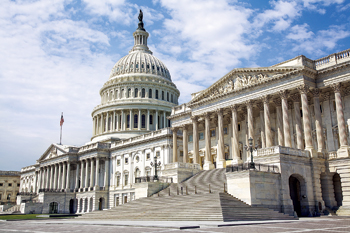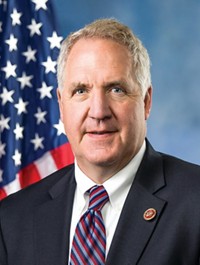Advertisement
Grab your lab coat. Let's get started
Welcome!
Welcome!
Create an account below to get 6 C&EN articles per month, receive newsletters and more - all free.
It seems this is your first time logging in online. Please enter the following information to continue.
As an ACS member you automatically get access to this site. All we need is few more details to create your reading experience.
Not you? Sign in with a different account.
Not you? Sign in with a different account.
ERROR 1
ERROR 1
ERROR 2
ERROR 2
ERROR 2
ERROR 2
ERROR 2
Password and Confirm password must match.
If you have an ACS member number, please enter it here so we can link this account to your membership. (optional)
ERROR 2
ACS values your privacy. By submitting your information, you are gaining access to C&EN and subscribing to our weekly newsletter. We use the information you provide to make your reading experience better, and we will never sell your data to third party members.
Policy
House Republicans Unveil Draft Legislation To Reform Federal Law On Chemical Safety
The House of Representatives draft bill to overhaul the Toxic Substances Control Act receives mixed reviews.
by Cheryl Hogue
March 6, 2014
| A version of this story appeared in
Volume 92, Issue 10
A draft bill by House of Representatives Republicans to overhaul the Toxic Substances Control Act (TSCA) is getting mixed reviews. Chemical industry groups are politely welcoming the draft, while environmental and health activists are speaking out against it.
Rep. John M. Shimkus (R-Ill.), chairman of the House Energy & Commerce Subcommittee on Environment & the Economy, released the draft measure on Feb. 27. It shares some similarities to a bipartisan bill (S. 1009) introduced last year in the Senate. He says the draft bill, which has not been introduced formally, is a starting point for discussion among lawmakers.
Among other things, the draft bill would require EPA to divide all commercial chemicals on the market into two categories, low or high priority, depending on whether existing information on a substance suggests it might pose a risk to human health or the environment. EPA would assess each high-priority chemical for safety and then either deem it safe for its intended uses or regulate it by requiring labels or restricting or phasing out its use. Low-priority chemicals, for the most part, would not be assessed.
The American Chemistry Council, a trade association, calls the draft a “positive development” toward reforming TSCA. But Safer Chemicals, Healthy Families, a coalition of some 450 environmental and health groups, businesses, and unions, says the draft legislation wouldn’t protect the public from high-risk chemicals.
Rep. Henry A. Waxman of California, the top Democrat on the Energy & Commerce Committee, says the draft bill “would weaken current law and endanger public health.” But he is hopeful that the draft can be modified in bipartisan discussions.




Join the conversation
Contact the reporter
Submit a Letter to the Editor for publication
Engage with us on Twitter